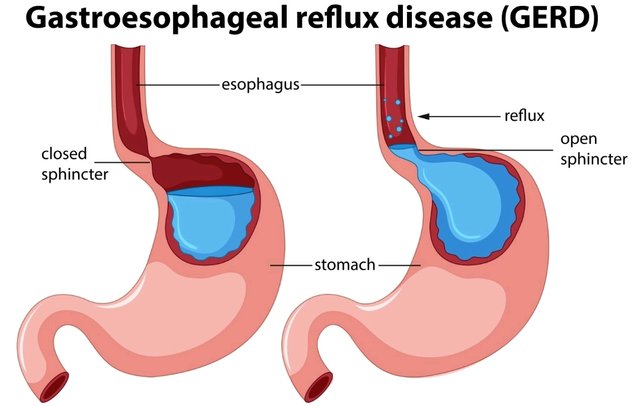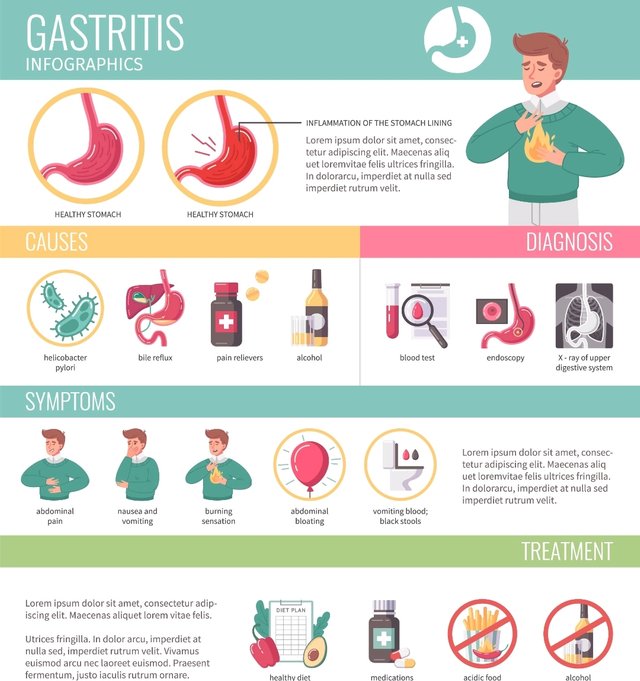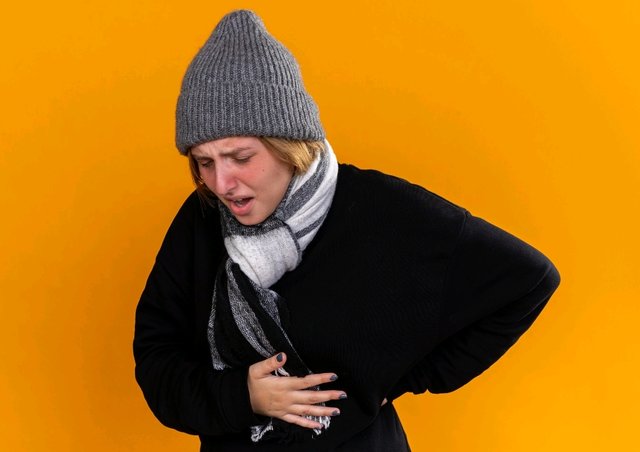GERD
Gastro-esophageal reflux disease (GERD) is known as a condition where stomach acid frequently flows back into the esophagus. It happens when the lower esophageal sphincter weakens or relaxes abnormally. Lower esophageal sphincter is a ring of muscle that acts like a valve. It opens to let food in, and closes back immediately.
 Image source
Image source
Hiatal hernia promotes GERD . This is a condition where part of the stomach pushes through the diaphragm and into the chest cavity.It affects the function of the sphincter valve. Excess weight increases pressure on the stomach, and push acid into the esophagus.
During pregnancy, women experience hormonal changes and increased abdominal pressure. This can lead to reflux. Medications like NSAIDs, antihistamines and some antihypertensives contribute to reflux.
Fried or fatty foods, spicy foods, caffeine and alcohol can also worsen GERD. Smoking weakens the valve directly and increases acid production. When GERD is not properly treated or managed, it can lead to Inflammation of the esophagus
 Image source
Image source
When GERD is not properly treated or managed in can lead to narrowing of the esophagus due to build up of scar tissue. When GERD is not properly treated or managed it can lead to Precancerous changes known as Barrett’s esophagus , it can also lead to Respiratory issues like asthma or chronic bronchitis.
When the treatment and management of GERD fails , surgery can be carried out. Doctors can perform Nissen Fundoplication where the upper part of the stomach is wrapped around the valve to strengthen it. Doctors can use LINX device which is a small ring that is placed around the valve to help it stay closed when not swallowing.
10% Payout To @Worldsmile
